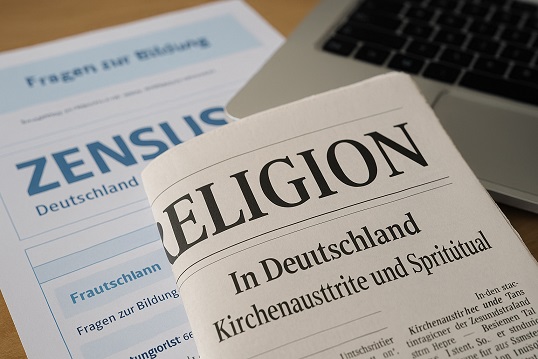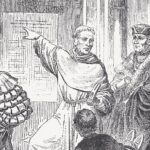
Religion in modern Germany is defined by two powerful forces: the long Christian heritage that shaped law, education, and holidays, and the steady rise of secular Germany visible in weak church attendance and growing religious diversity. This article explains how religion in Germany works today – from membership trends and regional contrasts to Islam, church tax, and the quieter search for meaning outside institutions – so readers can see the big picture without the clichés.
What does religion in modern Germany look like?
For centuries, Christianity framed daily life in German lands. The Reformation beginning in Wittenberg in 1517 reshaped authority, education, and the idea of calling. That inheritance remains visible in public holidays, legal traditions, and the cultural prestige of historic churches. Yet religion in Germany today is best understood as a spectrum: a significant number still belong to Catholic or Protestant churches, many identify with no denomination, and a growing minority follows Islam or other faiths. The result is not a vacuum but a plural landscape where belief is often personal and low-key, and where institutions still matter in social life even when pews are thin.
How secular is Germany today?
Secular Germany is real, but it is not the whole story. Several factors explain the secular profile:
- History: The GDR discouraged religious life for decades, leaving a strong legacy of non-affiliation in the East.
- Modernization: Urbanization, higher education, and individualism correlate with low churchgoing.
- Trust shocks: Institutional crises have pushed many nominal Christians to formally leave.
At the same time, non-religious does not mean non-ethical. Survey research consistently shows strong support for social solidarity, human rights, and environmental responsibility. Think of it as a shift from church-based morality to a civic, values-based ethic.
Religion in Germany by region: North – South, East – West
Patterns of belief follow old borders. The North and much of the East have lower church membership and sparse weekly attendance. Bavaria and parts of Baden-Württemberg show stronger Catholic identity, more religious festivals, and visible symbols in public spaces. The East – West divide is especially striking: in many eastern districts, non-affiliation is the majority. Regional nuance matters for understanding everything from school options to the feel of village life.
Islam and religious diversity in Germany
Religious diversity has increased, especially in major cities. Islam is now one of the largest minority faiths, with communities rooted in post-war labor migration and more recent arrivals. You will find vibrant mosque life in Cologne, Berlin, and Frankfurt, along with Alevis, Orthodox Christians, and growing Buddhist and Hindu communities. Public debates center on headscarves, Islamic education, and recognition of Muslim organizations in state-church frameworks. Diversity is also local: a small town may have little visible pluralism, while an urban neighborhood hosts multiple congregations on one street.
Church tax in Germany: how Kirchensteuer affects belonging
Church tax in Germany – the Kirchensteuer – is collected by the state from registered Catholics and Protestants as a surcharge on income tax. Many stay for access to rites of passage, tradition, or to support the social services that churches operate. Many others formally leave to avoid the tax or due to disillusionment. Either way, the system keeps religion in Germany institutionally significant even as private belief becomes more varied. For a deep dive on mechanics, controversies, and trends, see our guide: Why Germans Still Pay Church Tax.
Religion in Germany at school and in public life
Religion in Germany appears in practical ways:
- Schools: State schools often offer confessional religious instruction or ethics alternatives, depending on the federal state. Opt-outs exist, and curricula emphasize critical historical awareness.
- Hospitals and welfare: Churches remain major providers of social care – from kindergartens to elder care – funded by a mix of church tax, fees, and public money.
- Public broadcasting and ethics bodies: Churches still have a voice in advisory councils and Sunday programming. The tone is generally low-key and service-oriented rather than evangelizing.
Holidays, rituals, and cultural Christianity
Even in secular Germany, cultural Christianity persists. Advent markets, Easter traditions, Ascension Day hikes, and quiet Sundays reflect a calendar shaped by faith. Many non-practicing people still choose church weddings, baptisms, and funerals because these rituals carry family meaning and social dignity. Pilgrimage walking has revived as a secular-spiritual practice – see German Pilgrimages and the Jakobsweg. These habits show how religion in modern Germany survives as culture even when doctrine fades.
People and policy: pacifism, memory, and the civic ethic
The memory of dictatorship and war still shapes public ethics. German pacifism – the reflex to prefer restraint and diplomacy – remains influential even as security policy adapts. The broader memorial culture, from Stolpersteine to camp memorials, ties historical responsibility to present values like human dignity and minority protection. Explore these themes in German Pacifism: A Postwar Identity in Flux and How Germany Handles Its Past.
Religion in Germany and work values
The Protestant work ethic still echoes in expectations about punctuality, training, and quality. Even many non-religious Germans inherit a cultural script that prizes diligence and social duty. For background and modern critiques, see The Protestant Work Ethic in German Culture.
FAQ: quick answers about religion in Germany
Why is Germany so secular?
A mix of history, especially the GDR legacy in the East, modernization, and low trust in institutions has reduced formal church ties. Many people still hold strong civic values without religious affiliation.
How does the church tax in Germany work?
Registered Catholics and Protestants pay a surcharge on income tax that funds church life and social services. People can formally deregister.
What religions are growing in Germany?
Religious diversity is rising in cities. Islam is the largest minority faith, while individualized spirituality – meditation, pilgrimage, and humanist rites – also grows outside institutions.
Is religion taught in German schools?
Many states offer confessional religious instruction with opt-outs and alternatives like ethics. Curricula pair religion with strong historical and civic education.
Does Germany have strict church – state separation?
Germany uses a cooperation model. The state collects church tax for recognized bodies and grants them roles in social care and broadcasting, while maintaining constitutional neutrality.
What religion in modern Germany really is
The simplest way to describe religion in Germany today is this: institutions matter less for weekly worship and more for life services, welfare, and cultural memory. People mix low formal participation with strong values around dignity, social responsibility, and remembrance. Religion in modern Germany is not disappearing – it is moving from church pews to civic habits, private meaning, and carefully protected pluralism. For the wider value frame, see the hub: Belief and Identity in Modern Germany: What Do Germans Really Value?
Related Topics:
- Why Germans Still Pay Church Tax
- Belief and Identity in Modern Germany
- German Pacifism: A Postwar Identity in Flux
- The Protestant Work Ethic in German Culture
- German Pilgrimage Routes and the Jakobsweg
- How Germany Handles Its Past







